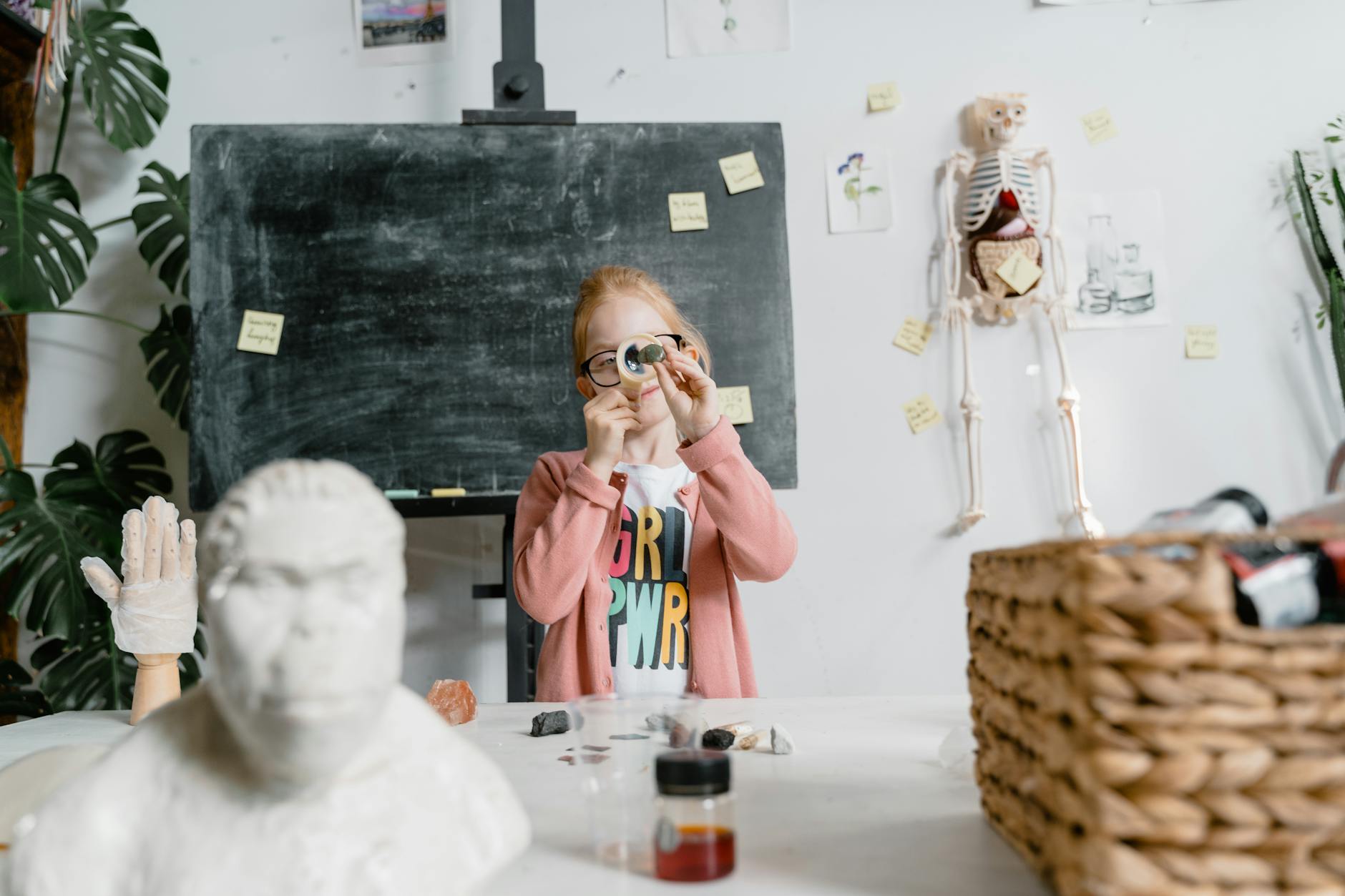How to Transform Team Dynamics with Creative Workshops in the United States

Identifying Team Needs
Assessing Current Dynamics
In my role as a process optimization professional, I've found that assessing the current team dynamics is akin to examining the intricate operations within the logistics hubs near O'Hare International Airport. This step involves evaluating how team members interact and collaborate on projects. Observations and feedback sessions can help highlight any friction points or areas that require improvement. Understanding these dynamics is crucial for choosing the right approach, whether that's introducing activities like a pottery class San Francisco style for creativity or more technical workshops for problem-solving.
Recognizing Engagement Gaps
After assessing dynamics, the next critical step is identifying engagement gaps. This can be compared to spotting inefficiencies on the bustling Magnificent Mile during peak hours; gaps can disrupt flow and efficiency. Are team members fully immersed in their roles? Identifying areas of low motivation or unclear communication helps tailor solutions that boost morale and participation, such as virtual team building activities that offer flexibility while engaging remote participants.
Setting Clear Objectives
Setting clear and actionable objectives is like establishing precise markers on a circuit board — it guides the pathway for team development. Defining what success looks like for the team, whether it’s improved communication or increased creative problem-solving, is essential. This objective-setting serves as the foundation for selecting effective solutions, like couples cooking classes NYC, designed uniquely to foster teamwork and cooperation, providing a blueprint for transformative team experiences.
Designing Effective Workshops
Choosing Appropriate Activities
In designing effective team workshops, selecting the right activities can significantly impact engagement and productivity. Whether you're planning a session near the bustling logistics hubs near O'Hare International Airport or within the corporate offices on the Magnificent Mile, tailoring the activities to match your team’s specific needs is crucial. For example, team building activities NYC can serve as an inspiration, offering diverse options such as collaborative problem-solving exercises or creative breakout sessions.
Customizing for Your Team
Customizing activities for your team involves understanding their unique dynamics and preferences. You might consider organizing cooking classes san francisco style sessions which emphasize teamwork in a collaborative environment. These classes can foster new insights and should be adapted to suit your team's skill levels and interests, enhancing their problem-solving skills and promoting camaraderie.
Integrating Practical Tools
Integrating practical tools into your workshops is essential for facilitating efficient outcomes. Tools such as digital collaboration platforms can streamline communication and project tracking. Think of them as the nuts and bolts of your workshop—much like the facility layouts and equipment used in logistics hubs. They keep things running smoothly, allowing your team to focus on the creative and strategic aspects of the activities.
Facilitating a Workshop
Creating a Comfortable Environment
When setting up a workshop aimed at transforming team dynamics, creating a comfortable environment is crucial. First, consider the layout of the space. Arrange seating to facilitate open discussions and ensure everyone can see each other. Next, adjust the lighting and temperature to promote focus and comfort. Offering refreshments can make participants feel more at ease, mirrored by the ambiance often found in practical baking classes. This attention to detail helps cultivate an atmosphere where team members feel valued and ready to engage.
Encouraging Open Communication
Open communication is vital for a successful workshop. Initiate activities that help break down barriers, perhaps starting with a lighthearted introduction to get everyone talking. Encourage team members to voice their thoughts and ideas freely. This could be akin to the interactive exchanges found in cooking classes nyc, where dialogue enriches the learning experience. Consider establishing ground rules that promote respect and active listening. This ensures that all voices are heard and valued.
Maintaining Focus and Energy
To maintain focus and energy during your workshop, incorporate a mix of activities that encourage participation. Using short bursts of energizing tasks can combat fatigue. Tailor your agenda to balance discussions with hands-on exercises, similar to how sessions unfold at innovation labs at the University of Illinois Chicago. This approach keeps participants engaged and ensures that the workshop proceeds smoothly, without losing momentum.
Measuring Workshop Outcomes
Collecting Participant Feedback
After hosting a workshop, evaluating its success is crucial. As a process optimization professional, I often emphasize the importance of collecting participant feedback to gain insights into the efficacy of the session. This involves employing both quantitative and qualitative methods—surveys for structured data and informal feedback sessions for in-depth understanding. The feedback helps identify areas that need refinement, such as introducing more interactive elements or facilitating virtual paint classes. A comprehensive feedback loop not only empowers participants by valuing their input but also guides future improvements.
Evaluating Team Impact
The ultimate goal of any creative workshop is to foster team collaboration and improve problem-solving capabilities. Thus, evaluating the workshop’s impact on the team's dynamic is essential. I focus on observable changes like enhanced communication, increased creativity, and more collaborative decision-making. Tools like peer assessments and self-reflection exercises can gauge shifts in team performance. A practical example would be measuring the effectiveness of a paint and sip san francisco session by observing team synergy in subsequent projects. Such metrics are vital for understanding the correlation between workshops and operational efficiency.
Adjusting Future Workshops
In fine-tuning workshop formats, integrating participant feedback and impact evaluations is key. For instance, if a specific activity didn’t resonate well, I would consider alternatives that better align with team objectives. Maintaining flexibility allows for more interaction and targeted skill-building, similar to revising logistics strategies to enhance productivity near logistics hubs. This iterative process ensures that future workshops continue to meet the evolving needs of the team and contribute meaningfully to their developmental goals.
Overcoming Common Workshop Challenges
Navigating Resistance to Change
In any organisational setting, especially around the bustling Magnificent Mile corporate offices, encountering resistance is expected. To smoothly implement creative workshops, it's essential to understand this resistance often stems from uncertainty or fear of the unknown. I recommend initiating transparent dialogues that outline how these workshops aim to positively impact both individual and team performance. Address concerns by connecting the workshop objectives to real-world improvements, such as enhancing project management efficiencies or streamlining communication systems, much like the operations teams at logistics hubs near O'Hare International Airport. This creates buy-in and gradually fosters a culture of openness to new methods.
Handling Diverse Team Dynamics
Another significant hurdle is managing diverse group dynamics, particularly in a city as multi-cultural as Chicago. Diverse perspectives bring valuable insights but can also lead to misunderstandings. I suggest implementing structured activities that promote inclusivity, like breakout sessions where participants tackle problems from multiple angles, reflecting the innovative spirit found in innovation labs at the University of Illinois Chicago. Encouraging participants to share their unique viewpoints can often reveal unforeseen solutions and synergies.
Maintaining Long-term Engagement
Post-workshop, sustaining momentum is crucial to integrating the learnt strategies into daily routines. I recommend developing follow-up action plans, possibly including regular check-ins or booster sessions. This ongoing engagement might mirror the adaptability strategies of logistics companies adjusting to market shifts. Further, using metrics to track progress, like improvements in meeting efficiency or reductions in project lead times, demonstrates tangible benefits, keeping teams motivated and committed to continuous development.


